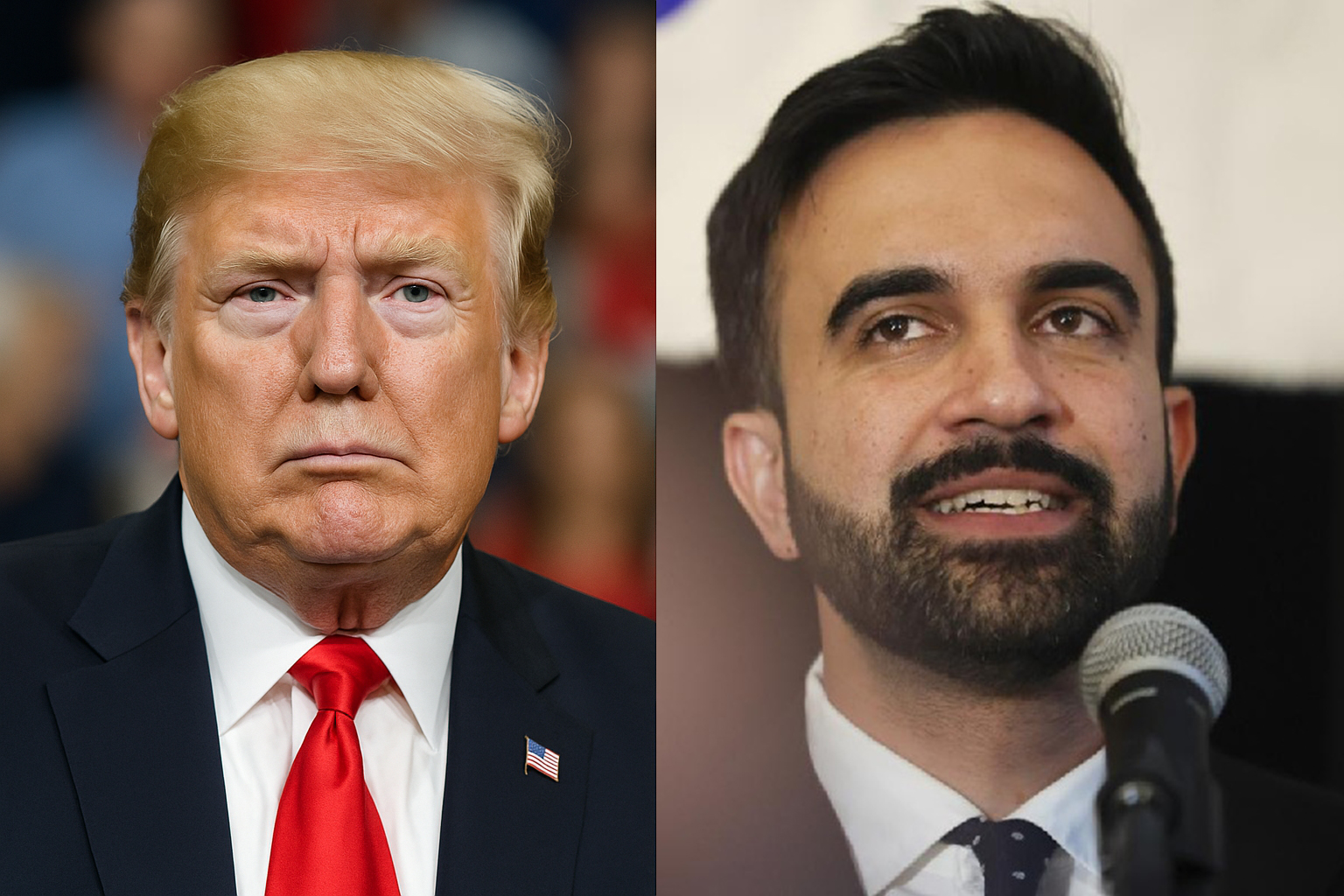Donald Trump and Zohran Mamdani. One’s a billionaire Republican president. The other a socialist mayor from Queens. Total opposites, right? Well… not so fast.”
“Trump rallied the forgotten right. Mamdani mobilized the ignored left. Each tapped into frustration and turned it into votes.” There are some striking commonalities in their political personas, despite being ideological opposites. Both are disruptive outsiders who rely on popular rhetoric rather than facts. They both provoke strong reactions Both stormed the gates of the establishment. Trump bulldozed the GOP. Mamdani flipped the Democratic machine on its head. Different ideologies, same outsider energy. Relying on populist appeal and power, both built their campaigns on anti-establishment rhetoric. Trump rallied conservative populists; Mamdani energized progressive grassroots movements. They are both polarizing figures: They evoke strong reactions. Trump’s critics accuse him of authoritarianism; Mamdani’s opponents label him a “communist” and question his patriotism. Trump tweets. Mamdani memes. They know how to dominate the narrative. Whether it’s trolling Cuomo or torching critics, they know how to control the narrative.
And they share a stage: New York. Trump has built towers. Mamdani has build movements. But their influence stretches far beyond the city—they’re national icons disrupting and reshaping political discourse.
Still, their visions for America couldn’t be more different.
| Issue | Donald Trump | Zohran Mamdani |
| Economic Policy | Deregulation and tax cuts | Universal childcare, fare-free transit |
| Immigration | Restrictive, ICE deployment | Pro-immigrant, anti-ICE stance |
| Identity & Faith | White Christian | Muslim South Asian |
Trump unleashes ICE on what he calls “aliens” and the businesses that hire them. Mamdani counters with defiance: “To get to one of us, you’ll have to get through all of us.”
They are playing different games but from the same playbook.
Trump and Mamdani are two sides of a political coin. Whether you love them or loathe them, they’re rewriting the rules and perhaps history. And that raises a bigger question: What does this mean for the future of the United States of America?








